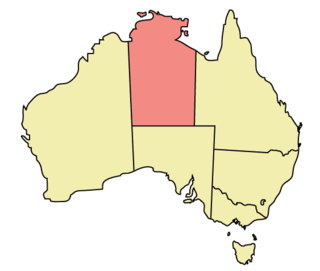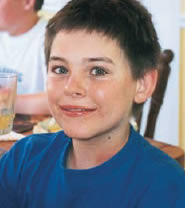
Rolf Harris was an Australian musician, television personality, painter, and actor. He often used unusual instruments like the didgeridoo and the Stylophone in his performances, and is credited with the invention of the wobble board. He was convicted in England in 2014 of the sexual assault of four underage girls, which effectively ended his career.
Craig Dougall McLachlan is an Australian actor, musician, singer and composer. He has been involved in film, television, the music industry and music theatre for over 30 years. He is best known for appearing in the soap operas Neighbours and Home and Away and the BBC One spy drama Bugs. He has portrayed the title character in The Doctor Blake Mysteries, for which he was nominated for the Logie Award for Most Popular Actor; he has previously won the award in this category three times.

The Magistrates' Court of Victoria is the lowest court in the Australian state of Victoria.

In England and Wales, a magistrates' court is a lower court which hears matters relating to summary offences and some triable either-way matters. Some civil law issues are also decided here, notably family proceedings. In 2010, there were 320 magistrates' courts in England and Wales; by 2020, a decade later, 164 of those had closed. The jurisdiction of magistrates' courts and rules governing them are set out in the Magistrates' Courts Act 1980.

Crime in Australia is managed by various law enforcement bodies, the federal and state-based criminal justice systems and state-based correctional services.
Robert Lindsay Hughes also billed variously as Bob Hughes and Robert Hughs, is an Australian-born British former actor who appeared in ABBA: The Movie and the television sitcom Hey Dad..!.

Crime in the Northern Territory is managed by the Northern Territory Police, the territory government's Department of the Attorney-General and Justice and Territory Families.

The Magistrates Court of South Australia is the lowest level court in the state of South Australia. The Magistrates Court, then known as the Court of Petty Sessions, was established in 1837, by the Court of Sessions Act 1837. It has both original and appellate jurisdiction and hears matters specified in the Magistrates Court Act 1991 (SA).
The Court of Summary Jurisdiction is a court in the Northern Territory of Australia. It has jurisdiction to deal with criminal offences which occur in the territory. It is one of the courts that is usually referred to as a magistrates court.

Daniel James Morcombe was an Australian boy who was abducted from the Sunshine Coast, Queensland, on 7 December 2003 when he was 13 years old. Eight years later, Brett Peter Cowan, a former Sunshine Coast resident, was charged with Morcombe's murder. In the same month, DNA tests confirmed bones in the Glass House Mountains were Morcombe's. On 13 March 2014, Cowan was found guilty of the murder, and was sentenced to life imprisonment for the murder, indecently dealing with a child, and interference with a corpse.
The Children's Court of Victoria is a statutory court created in Victoria, Australia. The court deals with criminal offences alleged to be committed by children aged between 10 and 17 and with proceedings concerning children under the age of 17 relating to the care and protection of children.

Human trafficking in Australia is illegal under Divisions 270 and 271 of the Criminal Code (Cth). In September 2005, Australia ratified the Protocol to Prevent, Suppress and Punish Trafficking in Persons, especially Women and Children, which supplemented the United Nations Convention against Transnational Organized Crime. Amendments to the Criminal Code were made in 2005 to implement the Protocol.
Catholic sexual abuse cases in Australia, like Catholic Church sexual abuse cases elsewhere, have involved convictions, trials and ongoing investigations into allegations of sex crimes committed by Catholic priests, members of religious orders and other personnel which have come to light in recent decades, along with the growing awareness of sexual abuse within other religious and secular institutions.

Kings Cross ER: St Vincent's Hospital was an Australian factual television show that looks at the work of the Emergency Department at St Vincent's Hospital in Darlinghurst, Sydney. This observational documentary series began on the Crime & Investigation Network on 2 February 2012. A second season began on 14 February 2013. A third season began in 2015 on the free-to-air Nine Network and aired 7:30 pm Thursdays.
The Family Court of Australia attacks were a series of shootings and bombings in New South Wales, Australia from 1980 to 1985. They targeted judges and other people associated with the Family Court of Australia. Two people were shot dead, two killed by bombs, a court building was damaged by a bomb, and another bomb was found attached to a motor vehicle. In July 2015, Leonard John Warwick was arrested and charged with multiple offences, including four counts of murder, one of attempted murder, and 13 counts of burning or maiming with an explosive substance. In July 2020, Warwick was found guilty of the majority of the offences he was charged with, including three of the murders. He was found not guilty of the murder of Stephen Blanchard, his brother-in-law.
Salim Mehajer is an Australian convicted criminal, property developer and former deputy mayor of Auburn City Council. In March 2018, Mehajer was declared bankrupt and in April 2018 was found guilty of electoral fraud, and sentenced to 21 months in prison with a non-parole period of 11 months. In April 2021, he was sentenced to 2 years and 3 months for lying to court.
On 6–7 April 2017, two teenage boys aged 15 and 16 went on a rampage in Queanbeyan, New South Wales, Australia, first stabbing a service station attendant to death, then violently attacking four people in a spree that continued for several hours. The attacks were investigated by Australia's Joint Counter Terrorism Task Force as a possible terrorism-related crime. On 1 May 2020 both males were sentenced. The older received a jail term of 35 years and 6 months, while the younger received 18 years and 4 months.
Crime in South Australia is prevented by the South Australia Police (SAPOL), various state and federal courts in the criminal justice system and the state Department for Correctional Services, which administers the prisons and remand centre.
Crime in Tasmania has existed since the earliest days of the European settlement in 1803. Laws creating criminal offences are contained entirely in statutes, statutory regulations, and by-laws, common law offences having been abolished by the Criminal Code Act 1924 s 6. Most offences are enforced by Tasmania Police, although a small category of offences are prosecuted by other statutory authorities such as local governments, and the Tasmanian branch of RSPCA Australia. All offences are prosecuted through the Tasmanian justice system, and sentences of imprisonment are administered by the Tasmania Prison Service. Some crime statistics for Tasmania are provided on the Tasmania Police website.








